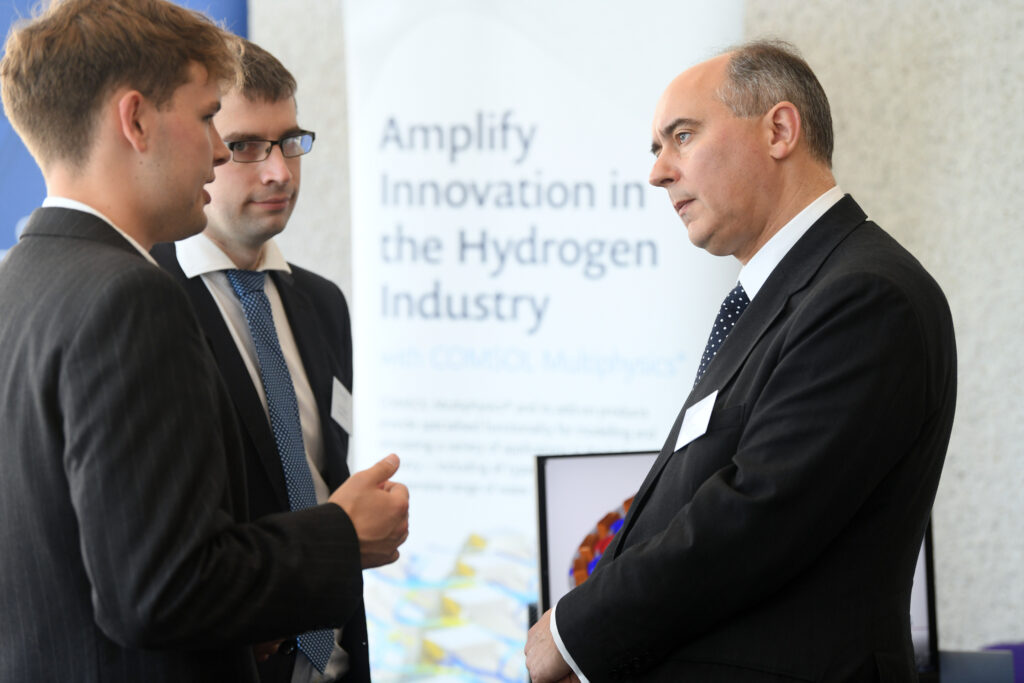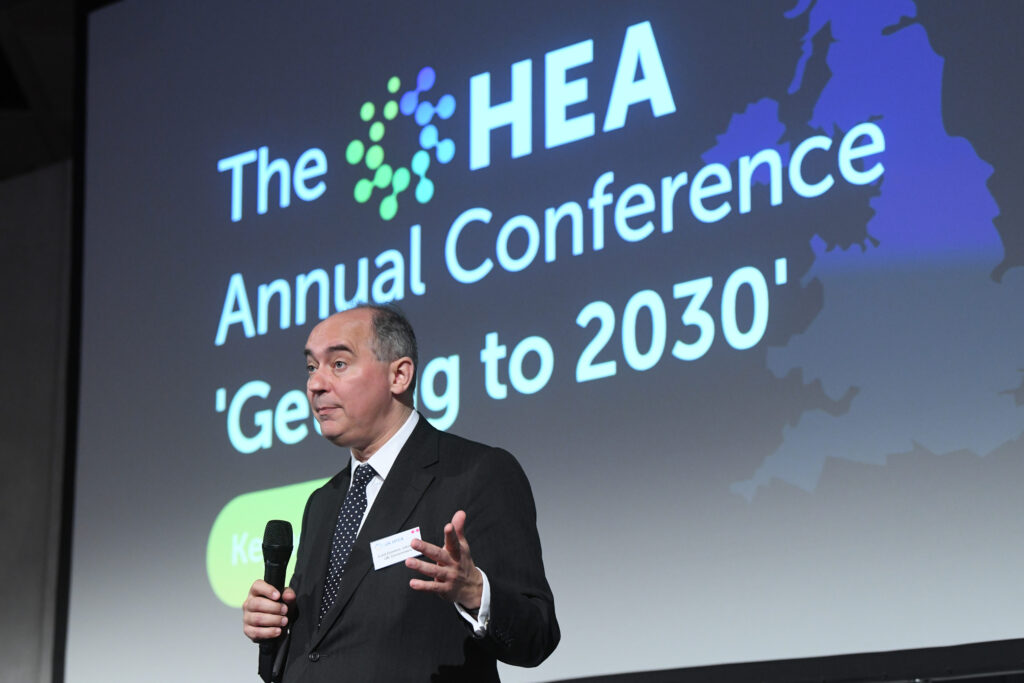The Minister of State, Lord Dominic Johnson from the UK Government’s Department for Business and Trade, has reinforced his pledge to work in partnership to deliver the government’s ambition of establishing a thriving hydrogen economy.
The Minister for Investment and Exports delivered the keynote address at the Hydrogen Energy Association’s (HEA) annual conference – Getting to 2030 – on May 24 at the QEII Centre in the heart of Westminster.
He said: “We, the Government, are an enabler for the HEA and the work you are doing, for the creation of hydrogen, understanding how its uses can be employed in the building of infrastructure, to enable us to capitalise on this incredible hydrogen technology. It really is a partnership between the Government and the private sector.
“We can deliver for this industry with the support it needs, not just for finance. It’s regulatory and structural, areas such as planning and additional carbon capture mechanisms.
“This is part of our core mission, and without this, we will not be able to transition from our carbon-based industry.”

Lord Johnson joined an array of specialists representing the whole hydrogen value chain – from production through distribution to applications across transport, heat and power – in speaking to more than 300 delegates.
The conference has focused on the UK hydrogen journey to 2030 and the achievement of the UK’s target of 10GW low carbon hydrogen capacity by that date. Low carbon hydrogen will be vital to the UK’s energy transition, providing enhanced resilience and clean growth, as well as forming a key element of our net zero ambitions.
Celia Greaves, CEO of the HEA, said: “Our 2023 conference has brought together representatives from the entire hydrogen value chain to focus on the UK journey to 2030 and the achievement of the UK’s target of 10GW low carbon hydrogen capacity by that date.”
The conference also saw the unveiling of the rebrand of the UK Hydrogen and Fuel Cell Association (UK HFCA), now to be known as the Hydrogen Energy Association, to address a new set of aims and ambitions for the organisation in future.
Ms Greaves added: “The changes across the landscape have been diverse and multifaceted and include an increasing range of low carbon hydrogen production routes, new areas of focus, such as national scale transportation and storage, and a growing number of hydrogen applications and end-use technologies.
“We have grown in parallel, extending our remit, reach and voice to reflect this richer and more complex ecosystem. And now, following extensive review and analysis, this evolution is to be extended to our brand.
“As the Hydrogen Energy Association, we can reflect not only our broad church membership, but also values that are important to us – momentum, innovation and diversification.”
